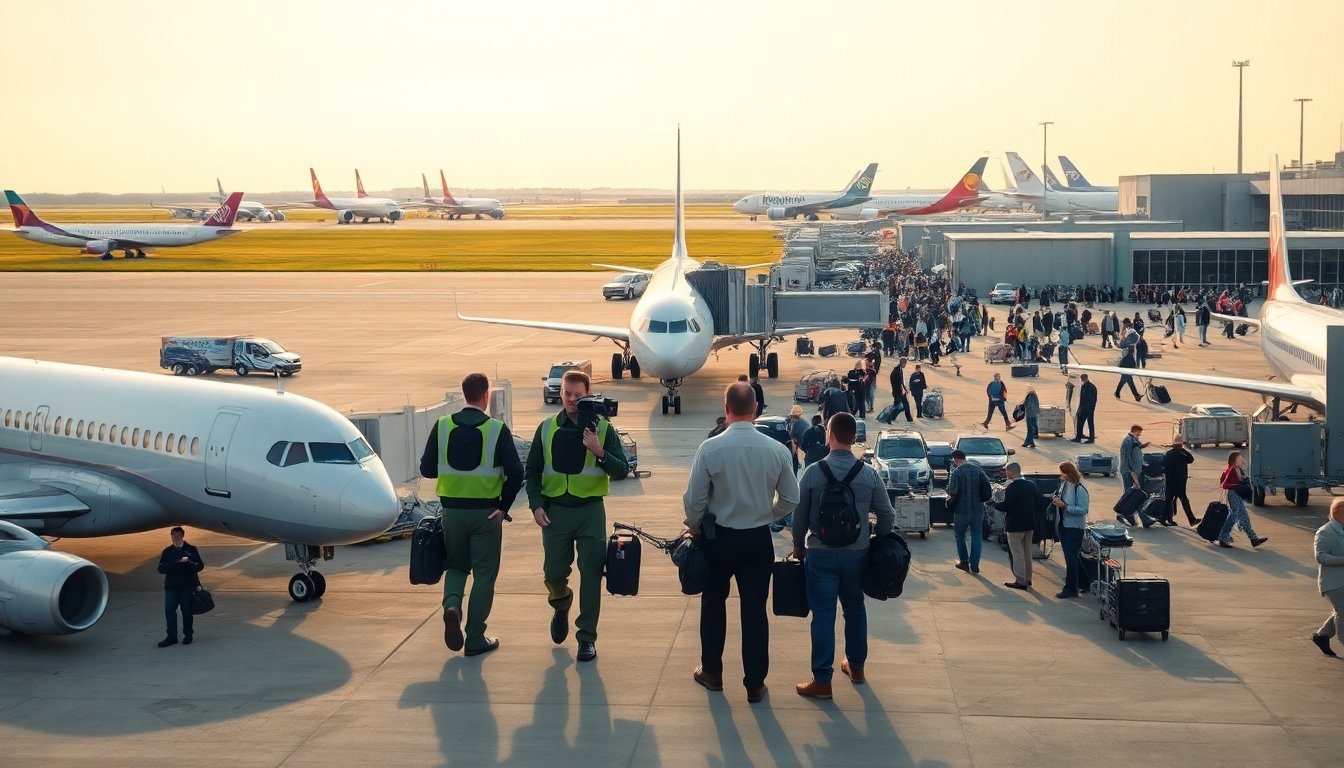Table of Contents
As the U.S. government shutdown ends, airlines are confident in their ability to restore normal operations. The Federal Aviation Administration (FAA) has announced it will limit necessary flight reductions to a maximum of six percent at major airports, aided by improvements in air traffic controller staffing.
The initial directive, implemented last Friday, mandated a gradual increase in flight cuts, potentially reaching ten percent in the coming days. This staffing crisis arose as air traffic controllers faced financial difficulties, leading to increased absenteeism among those working without pay during the shutdown.
Impacts of air traffic controller shortages
The shutdown has caused significant staffing shortages across 40 busy airports, where air traffic controllers are essential for maintaining safety standards. The FAA’s decision to implement flight cuts aimed to address urgent concerns regarding air travel safety. With thousands of controllers already in short supply, even a small number of absences exacerbated the situation, resulting in widespread disruptions.
Airline responses to operational challenges
Airlines have strategically focused their cuts on regional routes to mitigate impacts on core operations. Reports indicate that approximately 1,000 flights were canceled nationwide in response to these staffing shortages. Despite this, airline representatives remain optimistic about quickly resuming services once the FAA lifts its restrictions.
In a statement from the Airlines for America trade group, officials expressed eagerness to welcome a record number of passengers—31 million—during the upcoming Thanksgiving travel period. This optimism relies on the FAA’s clearance, anticipated in the coming days.
Financial implications for air traffic controllers
The financial strain from the government shutdown has been particularly challenging for air traffic controllers, many of whom are expected to receive a substantial portion of their back pay within 48 hours of the shutdown’s conclusion. However, the lingering effects of missed paychecks have forced some controllers to seek additional employment, leading to increased absenteeism.
Transportation Secretary Sean Duffy emphasized the urgency of resolving these staffing issues, noting that missing two paychecks could severely impact many controllers. The FAA has observed a recent stabilization in staffing, which is encouraging for the resumption of normal flight operations.
Looking ahead to holiday travel
As Thanksgiving approaches, the potential for ongoing disruptions remains a concern. Experts warn that challenges from recent staffing shortages may continue to affect air travel, especially during the busy holiday season. Travelers are advised to stay informed about their flight statuses and to prepare for possible delays.
American Airlines executives have reassured employees of their commitment to minimizing disruptions, believing that proactive planning will facilitate a smooth transition back to regular operations. They emphasized that millions of passengers deserve reliability and a stress-free travel experience.
While airlines express optimism about returning to normal operations after the government shutdown, the lingering effects of staffing shortages may still pose challenges. With the holiday travel period approaching, passengers should remain vigilant and prepared for potential disruptions.


